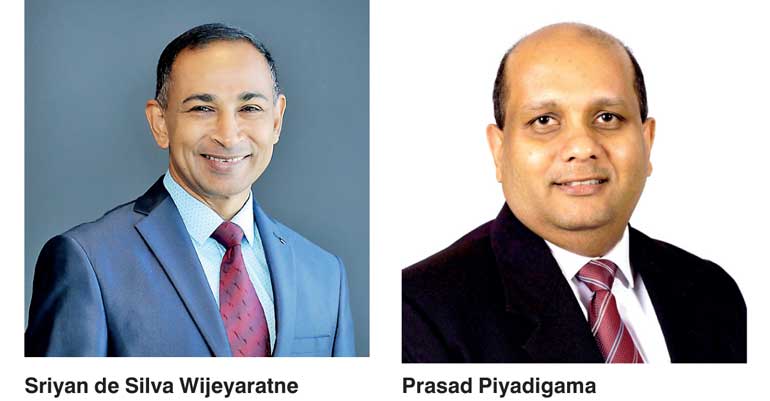Tuesday Feb 17, 2026
Tuesday Feb 17, 2026
Thursday, 2 November 2017 00:15 - - {{hitsCtrl.values.hits}}
Environmental and climate change have become issues with a direct effect on economies, enterprises and society as a whole. The three dimensions of sustainable development – economic, environmental and social, as the International Organization for Employers (IOE) notes, are inextricably linked and policy actions in one of these areas are bound to have impacts on the others.
Within the climate change agenda, governments and international governance organisations are developing policies and measures to make the transition to low carbon economies, and to meet international commitments to emission reduction targets. Such moves as IOE further illustrates, will not only affect enterprises of all sizes and sectors, but will also provide new business and employment opportunities.
At the upcoming annual symposium of the Employers’ Federation of Ceylon (EFC) which will unfold on 8 November at the Cinnamon Grand on the theme of ‘Sustainable Enterprises – Creating value’, expert panellists drawn from the EFC member companies will deliberate on ‘Green Initiatives’, bringing best practices under spotlight.
As Sriyan de Silva Wijeyaratne, the Managing Director/CEO, Teejay Lanka PLC which is South Asia’s largest textile manufacturer and Sri Lanka’s only multinational mill, asserts, sustainability is high in his company’s agenda. Wijeyaratne who will be among the eminent group of panellists at the EFC symposium’s session on ‘Green Initiatives’ proposes several measures which could give muscle to the raw material supply chain of the country. “There is enormous potential to manufacture sustainable raw materials in the country, which are imported to a large extent today, but implementation of policies to strengthen the investments on such projects are vital,” he says.
Opportunities for SMEs and other potential bodies to become a part of the supply chain also exist in niche areas, as Wijeyaratne asserts, but mainstream products need certain economies of scale and R&D etc, to be globally competitive, he says.
Sri Lanka’s strengths in promoting green initiatives are many, says the senior professional who perceives country’s ‘cultural affinity’ towards nature, relatively good forest cover and favourable corporate commitment towards green initiatives, fuelling the move. “Sri Lanka’s education system, however, can be leveraged much more to create awareness among the future generations,” he adds.
As a fully-fledged employer organisation, EFC can help create a strong platform to promote green initiatives by providing consultancy and legal advice, helping to bridge the technological gap, building collaborations, investing assistance on green initiatives and aligning nation’s objectives with sustainable development goals, points out Wijeyaratne who also urges EFC to play a stronger watch guard role in preventing the destruction and exploitation of natural reserves.
Prasad Piyadigama, Organisation and HR Director, Siam City Cement Lanka Ltd., who will also be among the panellists at the EFC symposium’s session on Green Initiatives notes that, as an industry that consumes a significant amount of natural resources and energy, the cement industry must lobby for and support green energy concepts in the form of solar, wind, waste to energy, waste heat recovery solutions. At the same time state-supported mechanisms should be in place, to drive the industries to embrace green concepts, he notes.
As a company which is credited for introducing the first green cement product in the country, it perceives many potential ‘green jobs’ in areas such as water, recycling and energy. The lessons we can learn from our regional counterparts such as Thailand which is an active member of the global Cement Sustainability Initiative (CSI) that drives several green initiatives are many, says Piyadigama. “Energy management has evolved into a profession today and innovation think tanks continuously strive to evolve and develop actions to minimise the impact on environment. Think Green/Go Green is also a mindset and a behaviour and most companies have set up active employee groups to come up with simple initiatives and make things happen,” he adds.
As the strongest employer association in the country, the EFC is already proactive on ‘green initiatives’ says Piyadigama who urges it to take the next step by driving a national standard on sustainability. The EFC can also play an important and a pivotal role in ensuring that green jobs are as attractive as other corporate roles or even more in order to encourage the next generation leaders to shape and build careers on green jobs, he observes.